Despite previous campus firestorm, Turning Point USA to welcome conservative speakers at ASU
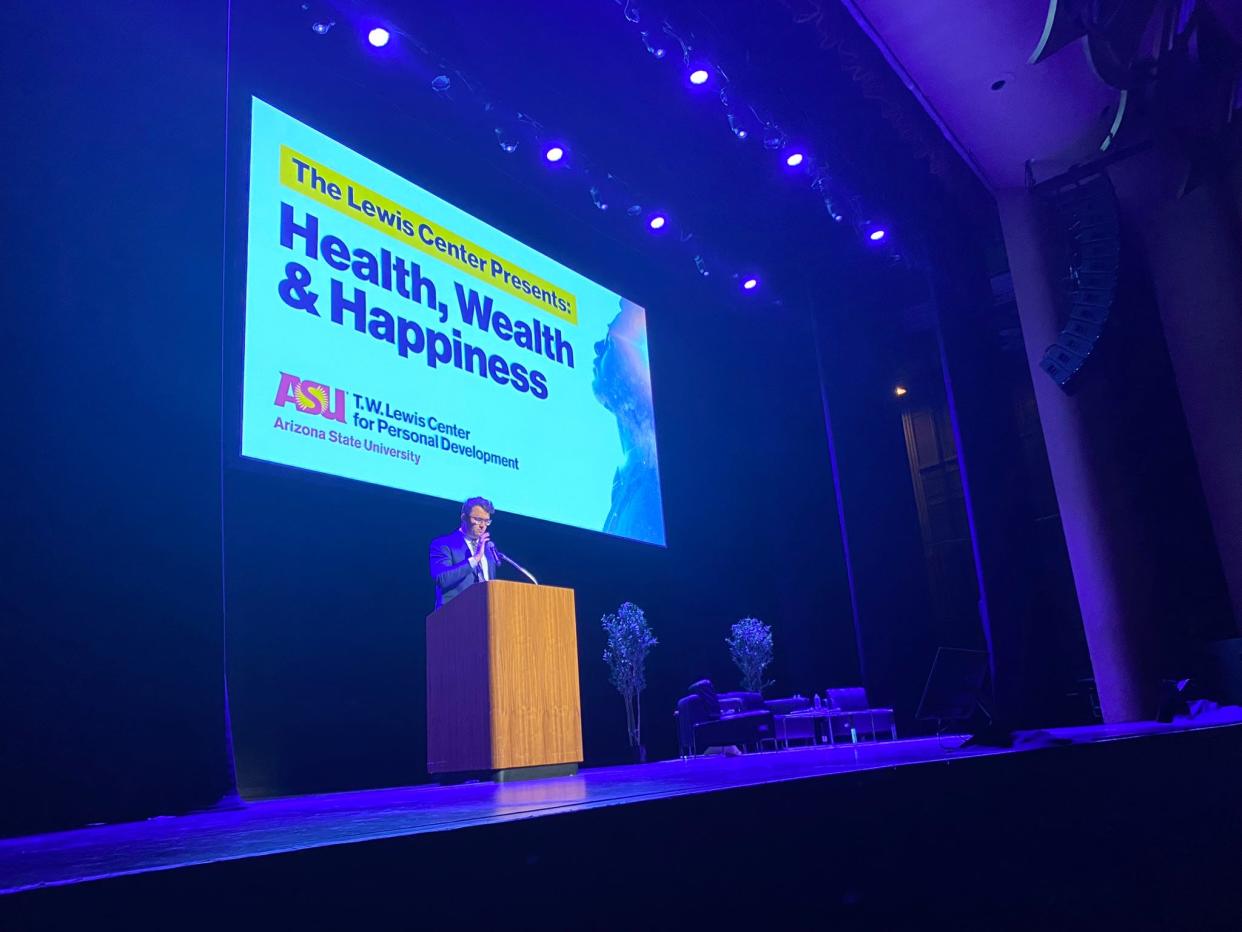
- Oops!Something went wrong.Please try again later.
Arizona State University's free speech controversies appear far from over, as the school's Turning Point USA chapter prepares to welcome conservative speakers Charlie Kirk and Dennis Prager back to campus in September.
News of the event comes after their last visit, hosted by a university center devoted to personal development and conservative values, ignited a public firestorm.
The previous talk was met with protest from some faculty and students at ASU. It ignited further controversy after Ann Atkinson, the former director of the T.W. Lewis Center for Personal Development, publicly alleged that she lost her job over bringing Kirk and Prager to campus — a claim the university strongly denies. Later, Republican state lawmakers launched a committee to investigate the incident.
Sen. Anthony Kern, R-Glendale and co-chair of the committee, told The Arizona Republic that he intends to go to the upcoming event. He said he remains concerned about free expression at the university and that he and other Republican lawmakers intend to "keep an eye" on the school in coming months.
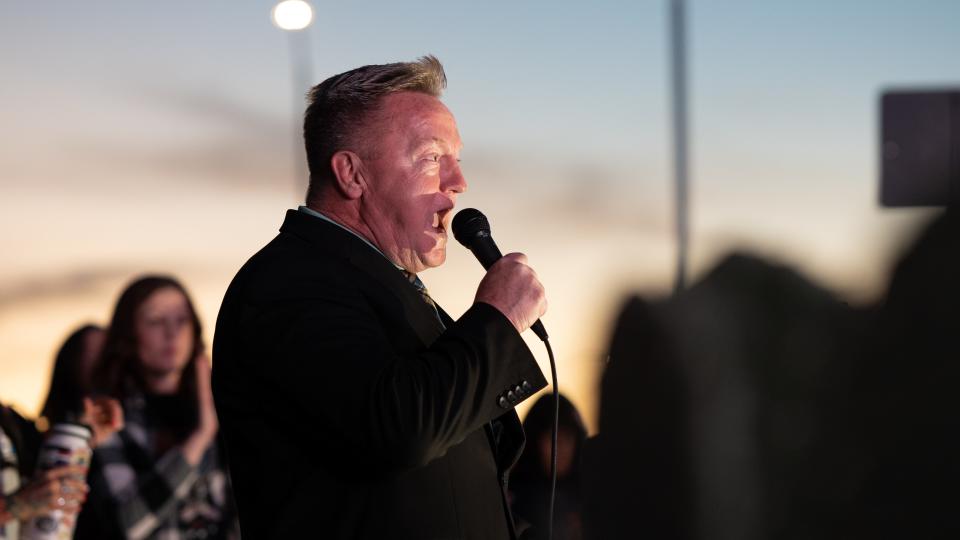
"This event will again shine a spotlight on the faculty and their reaction," Kern said. "And, ASU in general."
Conversely, Democratic Rep. Analise Ortiz of Phoenix, who also sits on the committee, said the upcoming talk just proves that the university allows people with diverse political beliefs to speak freely on campus.
"They're going to have the event and it's going to go on," she said. "I don't think there's any reason for the Legislature to be involved, especially since the university has already showed that they went about this the right way, that they gave opportunity for different viewpoints to be on campus, and that should be the end of the conversation."
The live event, called "Health, Wealth and Happiness 2.0," emulates the title of the February talk. Turning Point USA spokesperson Aubrey Laitsch said the event's return was prompted by the "remarkable level of interest generated during its previous hosting at ASU."
She did not say whether the upcoming talk would explicitly touch on the controversy that the initial event ignited, but noted that the organization is focused on holding discussions around "personal development, conservative values and the principles of free expression."
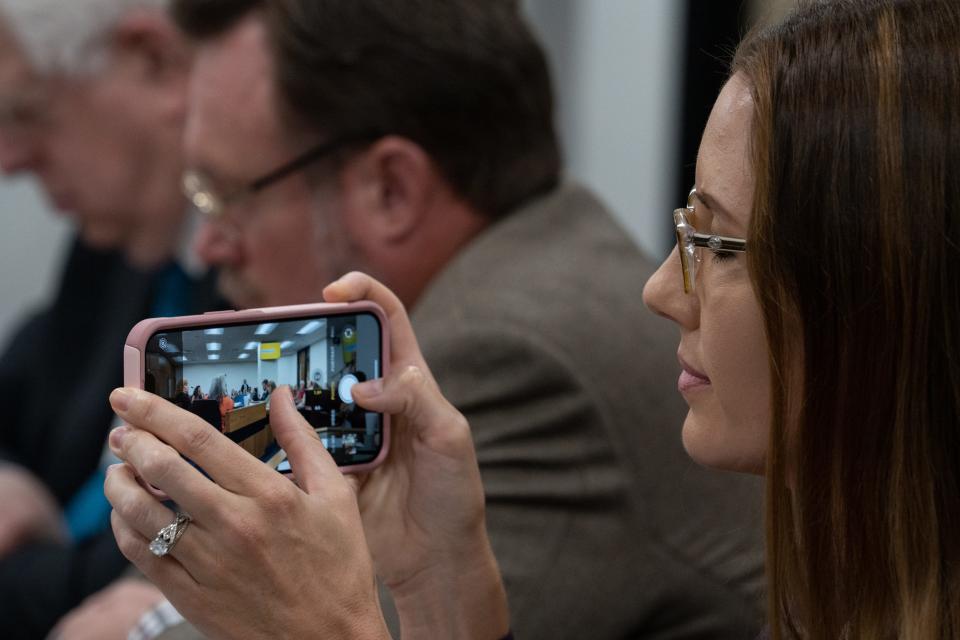
"This was an invitation both Dennis and Charlie were eager to accept after the controversy and subsequent firing of Ann Atkinson following the first iteration of this event," Laitsch said. "What happened to her was wrong and TPUSA believes that ASU and all public universities must adhere to the First Amendment and the free expression of ideas."
University officials said they remain committed to upholding the First Amendment.
"We not only allow but encourage an environment where all members of the university community are able to fully participate in an open exchange of ideas," said Chris Fiscus, a university spokesperson.
State lawmakers' ongoing inquiry
The talk will take place a week after ASU officials are expected to hand Kern and other Republican lawmakers a written investigation into the circumstances around the February event.
Kern said he hopes to hold additional meetings on the matter shortly thereafter.
"We're going to have another (committee) hearing in mid-October, and then we're going to probably continue the investigation," he said. "I'm looking at having students come forward who can keep their identity secret and let us know what's really happening at our state-run universities."
Meanwhile, at a Tuesday night talk in Tempe, Arizona Board of Regents Chairman Fred DuVal said leaders at Arizona's public universities are dealing with free speech issues "every single day" on their campuses, directly referencing the controversy ASU is currently facing.
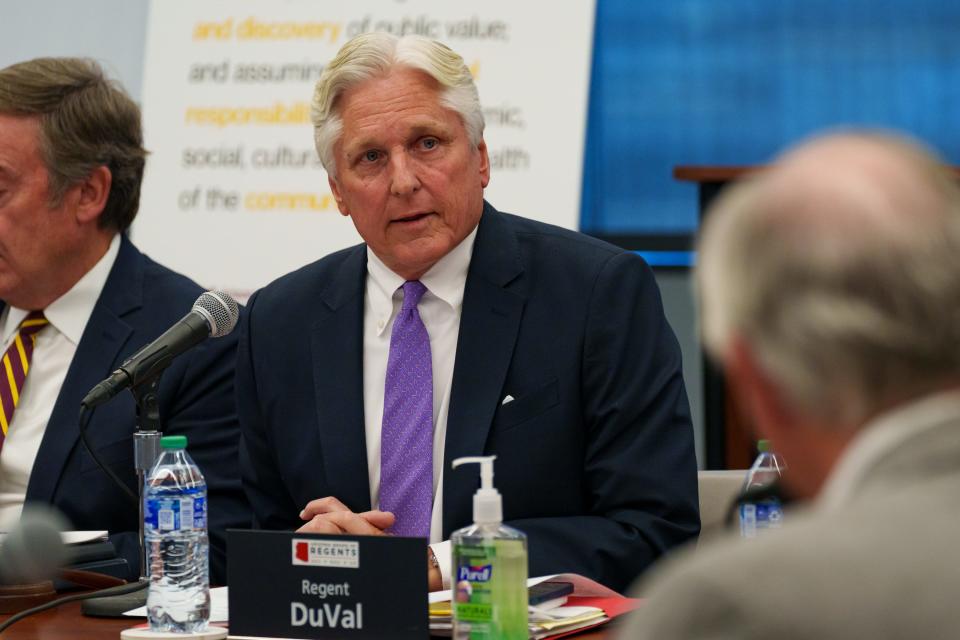
"The purpose of free speech is to create uncomfortable truths," DuVal said. "That is the purpose of creating a campus that is filled with a robust exchange of ideas — it makes you uncomfortable. That leads into an enormous array of challenging ideas about where civility ends and where the First Amendment comes in and how you moderate between the two."
He was one of several officials who spoke on civic engagement and civil discourse at the event, which was held as part of a series called Arizona Talks, which aims to gather community members to civilly discuss public policy issues.
"Campus activism is by its nature about challenging authority," DuVal said. "About challenging ideas. About, frankly, calling people out for immoral or wrong behavior. Incivility is the point. How do you square that?"
A pressure campaign?
Kern said his primary concern is that conservative students feel safe to express their opinions and attend events with right-wing speakers without fearing retribution from faculty.
He said he believes from his conversations with students that some have hidden their political ideology from their professors for fear that it could negatively impact their grades, although he said he couldn't provide "actual documented proof in paper" of such an incident.
"The culture there is that they are afraid of making noise," Kern said. "They just want to get through ASU, get good grades, get out in the real world and then they're free to speak. And that's a shame."
Even faculty protesting outside the event, he said, could contribute to a culture of fear. But Ortiz noted that professors still have "every right" to express discontent with speakers who "they might see as extremists who spread rhetoric that hurts marginalized communities."
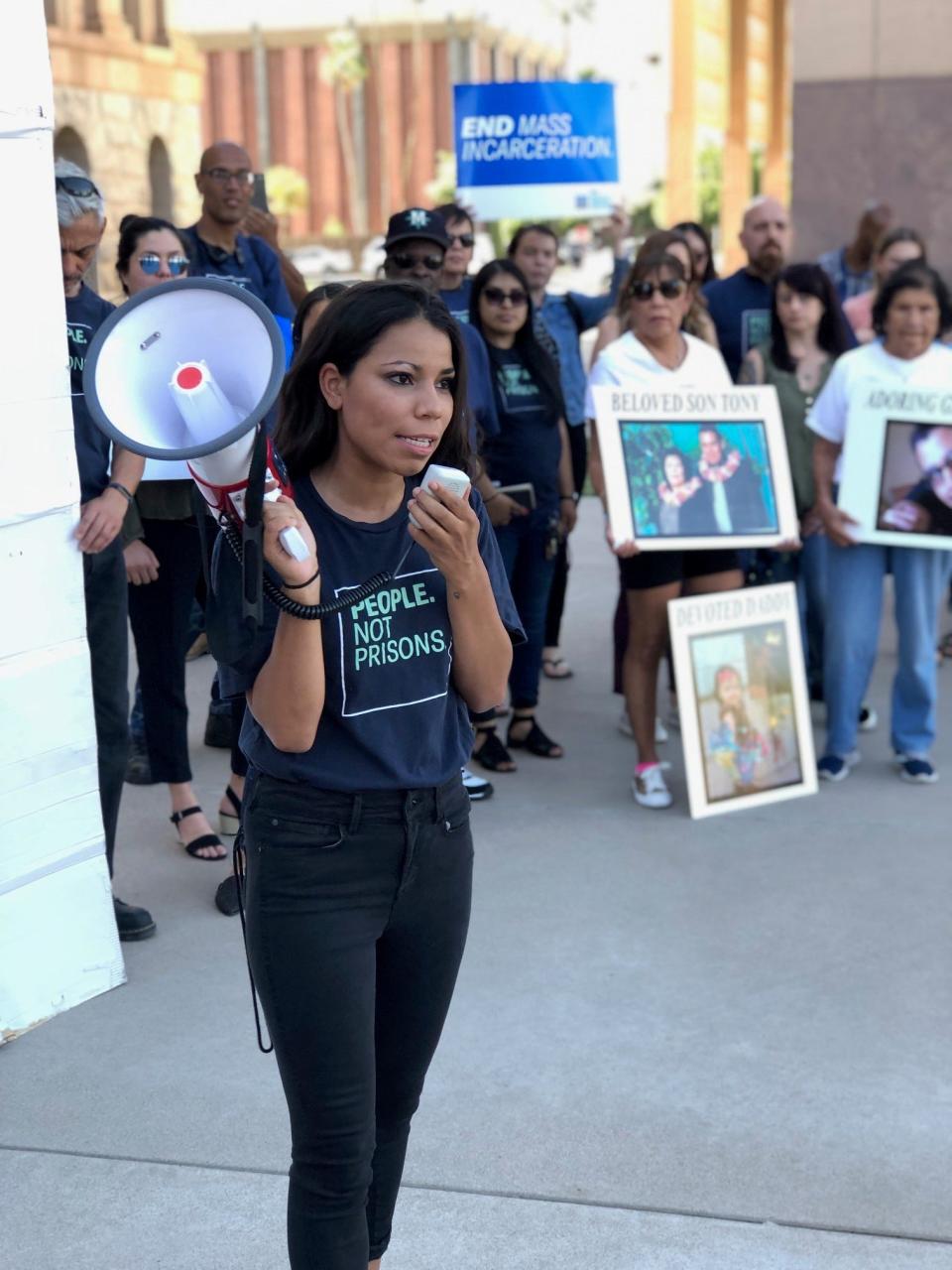
"They do have a right to protest, they do have a right to send letters expressing their discontent with the speakers, and that's the long and short of it," she said.
Kern agreed that faculty have the legal right to peacefully assemble and speak their minds. But he questioned whether they should do so, given their positions at the university.
"That's a position of trust," he said. "They've been hired by the university, and I think they should just adhere to that position of trust. I think students that are impressionable, they see their professor out there ... that's a little intimidating."
Ultimately, he said the Board of Regents is best equipped to create "guidelines" that address his concerns — and he intends to keep the pressure on until they do.
"They're really the ones who should be moving in the direction that we're trying to move," Kern said.
Still, DuVal told The Republic on Tuesday that he thinks Arizona's universities generally strike the right balance when it comes to free speech.
It's often "imperfect," he said, but ASU and other state universities still "commit wholeheartedly to the notion that free speech allows everybody to get heard."
"It's just messy," DuVal said. "There are no neat lines."
Sasha Hupka covers higher education for The Arizona Republic. Do you have a tip on Arizona's universities, community colleges or trade schools? Reach her at sasha.hupka@arizonarepublic.com. Follow her on X, formerly Twitter: @SashaHupka. Follow her on Instagram or Threads: @sashahupkasnaps.
This article originally appeared on Arizona Republic: Turning Point USA to return to ASU amid free speech inquiry

